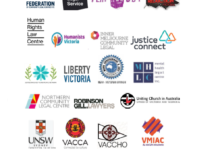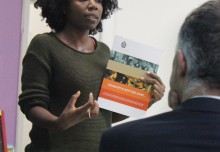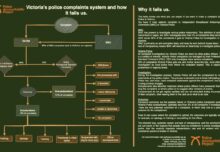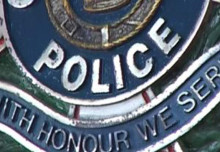In a recent article in the Melbourne Age, ‘African youth in New Year’s brawl‘ Salvation Army Major Brendan Nottle was quoted as saying:
“Rather than take the approach that we’re not going to talk about this for fear of being branded racist, or saying, ‘why are these young people here, why don’t they integrate’, we actually need to say this is a problem and work out a strategic way to address it,” he said.
The article also included this: “Police Association secretary Greg Davies said he was not aware of the New Year’s incident in the CBD, but police officers were wary of identifying the ethnic background of people involved in incidents they dealt with.”
The article was soon picked up by Herald Sun columnist Andrew Bolt here.
This is our response.
To imply that recent anti-discrimination efforts by Victoria police and community is somehow ‘hampering’ or deterring police from raising race as an issue is disingenuous and displays a fundamental mis-understanding of the issue.
Gripes about ‘now being cautious’ about raising race as an issue and Greg Davis’ assertion that ‘raising the race card’ is hampering police is minimising a complex issue and defecting responsibility back to those standing up against discrimination.
Nothing in the work to reduce racial profiling or discrimination implies or has caused ANY reduction of sector-wide efforts to support young people from African and other communities and discuss or work towards employment, education social inclusion, addiction etc and in fact agencies and communities remain focused on those efforts. (Efforts which have often been undermined or hampered by excessive or discriminatory police responses.)
Victoria Police have generally been good in not publicly highlighting the ethnicity of offenders when it is not a necessity and it is not required for identification or investigative purposes.
The basic rule of thumb is: When there is no need to highlight ethnicity – it does not need to be highlighted.
There is no causal link between ethnicity and criminal behaviour. Race is not mentioned after New Year’s brawls on Phillip Island or schoolies week on the Gold Coast or after a riot at Bob Janes in Dandenong.
Most police and agencies recognise that socio-economic, gender, age or situational related factors are what needs to be focused upon when preventing or reducing criminal behaviour.
Nothing prohibits police or agencies to work with each other to support or problem-solve the socio-economic and age related crime and involving ethnic-or cultural specific groups.
Raising ethnicity of alleged offenders in the media without any crime detection purpose is frought, almost always unhelpful and often dangerous in terms of drawing wrong associations between a particular ethnicity and a particular criminal behaviour and further stigmatizing a community which is often problematised in the media.
Misguided and inaccurate public associations between ethnicity and crime reinforce deeply help stereotypes, biases and can lead directly to increasing forms of discrimination, including employment discrimination, racial profiling and has well-established psychological harms and social exclusion impacts upon the community itself.
Police and agency workers should be deterred from raising ethnicity publicly, not by anti-racist efforts, but by their own common sense.
Journalists, police, agency workers and writers can and do raise issues of ethnicity, settlement, education and employment needs and have done so in considered, well-researched and appropriate ways. Independent journalist Michael Green, Age writers Denise Ryan and others have written extensively about the multiple issues effecting newly arrived African communities in Victoria. Journalist Ralph Johnstone recently received a Victorian African Community Award for his article ‘Across the African Divide’ which explored these complex intersecting issues directly.
Policing has not, and is not being hampered by effects to reduce racial discrimination – in fact more intelligent, nuanced, reflective, evidence-based and human rights focused policing AND public commentary around these issues will go a long way towards supporting our most vulnerable young people.
Further- Major Brendan Nottle’s recognition of the deep seated anger he has witnessed in African youths – may be related to the continual discrimination so many African-Australia young people experience in the CBD – endlessly excluded from clubs, followed by police patrols, abused by security, having any African theme dance night or club night raided, or pre-emptively and deliberately shut down – to the point when most club and venue owners no longer will book any African night for fear of the excessive police response.
There may be real underlying reasons for youth anger which are not being recognised by community workers focused only on the demonstrable behaviours and relate directly to discrimination rather than that community’s ‘problems’.
Anthony Kelly
Executive Officer
Flemington & Kensington Community Legal Centre Inc.




